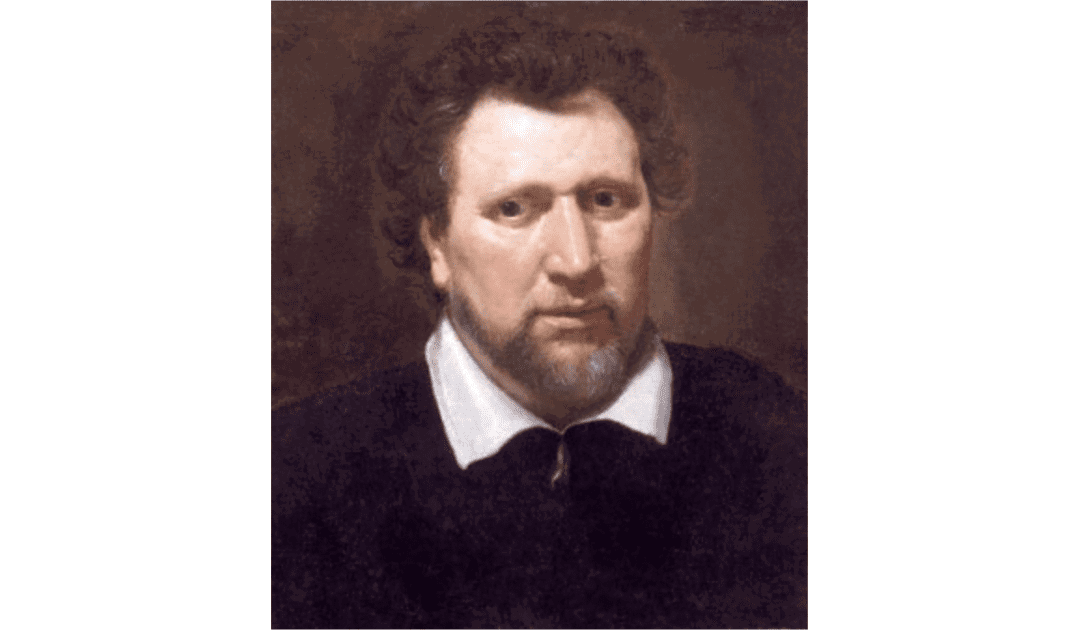On 22nd September 1598 the playwright, Ben Jonson appeared in court at Shoreditch indicted with the manslaughter of the actor Gabriel Spencer. Jonson was 26 years of age, and had shared a prison cell with Spencer the previous summer, when Jonson’s play, “The Isle of Dogs”, caused grave offence to the court circle, and perhaps to Queen Elizabeth herself.
Jonson’s account is that Gabriel challenged him to a duel, and that Gabriel’s sword was ten inches longer than his own. He claimed that Gabriel had wounded him in the arm before he managed to overcome and kill him. He expected to face the gallows, but instead his goods were seized and he was branded on the thumb as a convicted felon. He had converted to Catholicism whilst in prison, and may have escaped the gallows by reciting the “neck-verse”, psalm 51:1.
Jonson was born on 11th June 1572 and grew up in a working-class family in London. Despite a modest background, he received a good education and showed an early talent for writing. Jonson’s career began as an actor, but he soon turned his attention to writing plays. His first major success came with the production of his comedy “Every Man in His Humour” in 1598. The play introduced Jonson’s signature style of character-driven humour and sharp social criticism.
One of Jonson’s notable contributions to English literature is his development of the comedy of humours. This comedic genre focused on the exaggerated portrayal of characters driven by specific personality traits or “humours.” The humours, derived from classical medical theory, represented the four basic temperaments of human nature: melancholic, choleric, sanguine, and phlegmatic. Jonson’s comedies, such as “Volpone” and “The Alchemist,” skillfully showcased these characters and their humorous interactions, providing a satirical examination of contemporary society.
I have posted previously on Renaissance Writers, but rather skipped over Ben Jonson, saying that I couldn’t find anything to link him to Sir Anthony Standen. Shame on me! As readers of The Spy who Sank the Armada will know, Sir Anthony Standen and Ben Jonson shared Catholicism and having both been imprisoned twice.

